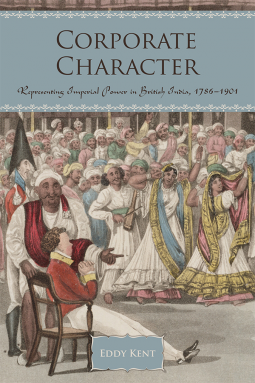
Corporate Character
Representing Imperial Power in British India, 1786-1901
by Eddy Kent
This title was previously available on NetGalley and is now archived.
Send NetGalley books directly to your Kindle or Kindle app
1
To read on a Kindle or Kindle app, please add kindle@netgalley.com as an approved email address to receive files in your Amazon account. Click here for step-by-step instructions.
2
Also find your Kindle email address within your Amazon account, and enter it here.
Pub Date Oct 06 2014 | Archive Date Oct 15 2014
Description
The vastness of Britain’s nineteenth-century empire and the gap between imperial policy and colonial practice demanded an institutional culture that encouraged British administrators to identify the interests of imperial service as their own. In Corporate Character, Eddy Kent examines novels, short stories, poems, essays, memoirs, private correspondence, and parliamentary speeches related to the East India Company and its effective successor, the Indian Civil Service, to explain the origins of this imperial ethos of “virtuous service.”
Exploring the appointment, training, and management of Britain’s overseas agents alongside the writing of public intellectuals such as Edmund Burke, Thomas Malthus, Thomas Babington Macaulay, and J.S. Mill, Kent explains the origins of the discourse of “virtuous empire” as an example of corporate culture and explores its culmination in Anglo-Indian literature like Rudyard Kipling’s Kim. Challenging narratives of British imperialism that focus exclusively on race or nation, Kent’s book is the first to study how corporate ways of thinking and feeling influenced British imperial life.
EDDY KENT is an assistant professor in the Department of English and Film Studies at the University of Alberta.
Advance Praise
“Corporate Character persuasively argues that the trial of Warren Hastings produced the beginnings of a new imperial culture within the British East India Company. Among the book’s many strengths are its lucid, incisive prose and its adroit handling of the scholarship on which it builds.”
Suzanne Daly, Department of English, University of Massachusetts Amherst
“Corporate Character is a timely and valuable contribution to studies of empire and the exercise of imperial authority. Kent explores how imperial ideology reproduced itself, not only through discourse but through the agents of empire. It is time for literary studies to engage more systematically with the corporate aspect of empire and Corporate Character is an excellent start.”
Laura Peters, Department of English and Creative Writing, University of Roehampton
Marketing Plan
Review Mailing
Academic Journals
Conferences
E-Marketing
Review Mailing
Academic Journals
Conferences
E-Marketing
Available Editions
| EDITION | Hardcover |
| ISBN | 9781442648463 |
| PRICE | CA$55.00 (CAD) |



